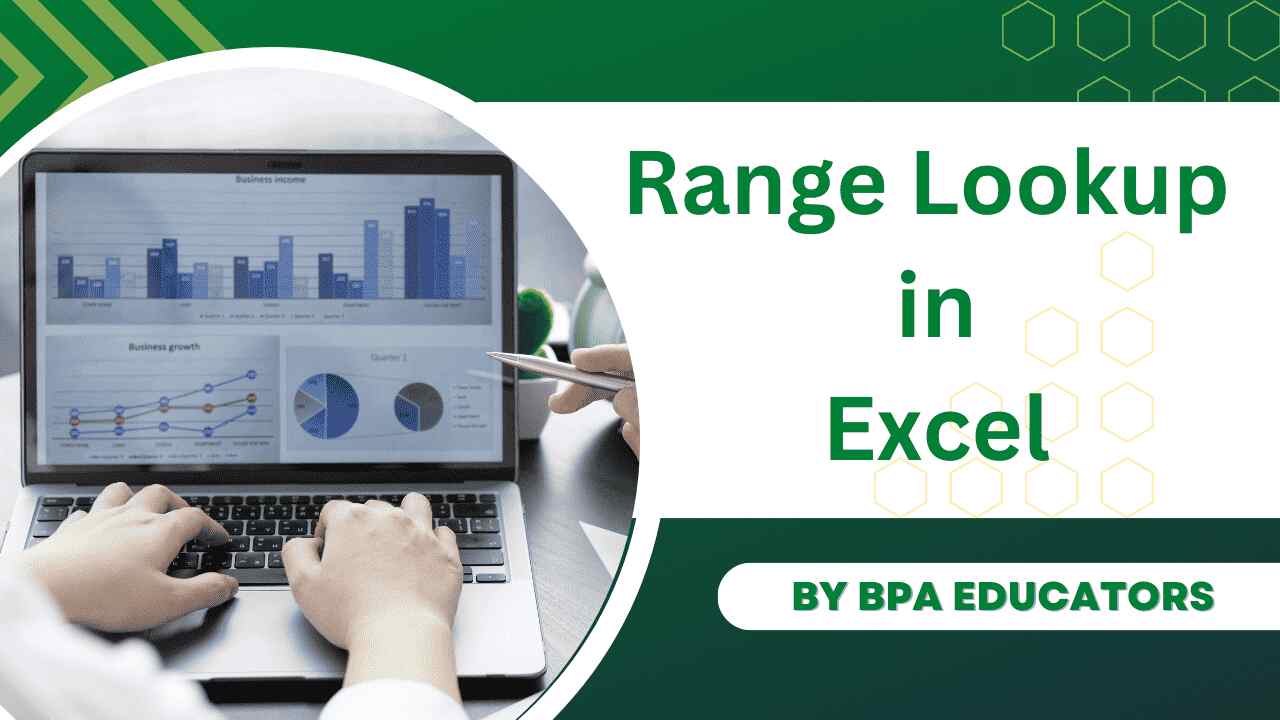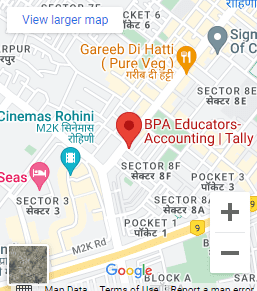What do the professional accountant do?
Firstly, Professional accountant work with individuals or organizations, handling monetary transactions by recording financial information. Also, their job may also include financial analysis and reporting, preparing tax returns, auditing accounts, and/or acting as consultants on a wide variety of financial matters.
Top 10 Accountant & Finance Certifications – To become a professional accountant
- Chartered Certified Accountant (ACCA) designation
- Certified Financial Planner (CFP®) designation
- Certified Management Accountant (CMA®) certification
- Certified Public Accountant (CPA) certification
- Chartered Alternative Investment Analyst (CAIA®) designation
- Chartered Financial Analyst (CFA®) designation
- Chartered Financial Consultant (CHF®) designation
- Chartered Global Management Accountant (CGMA®) designation
- Financial Modelling and Valuation Analyst (FMVAâ„¢) certification
- Financial Risk Manager (FRM®) certification
Certified Financial Planner (CFP) Designation – Professional accountant
The Certified Financial Planner (CFP) designation is a great finance certification for anyone who is pursuing a career in investment or wealth management. This certification is focused on financial planning high net worth and the retail segment of investment management. Further, though the CFP’s coverage of wealth management is extensive, its focus is narrow, thus making it not as applicable to other finance careers.
The CFP has two levels and two exams. While completing the CFP, you also complete an FPSC (Financial Planning Standards Council) Level 1 certificate as part of the process. Additionally, it costs about $2,000 and 4 years to obtain this designation. Moreover, the pass rate for the CFP is around 67%.
Certified Management Accountant (CMA) Certification – Professional accountant
The Certified Management Accountant (CMA) certification is an accounting certification that is offered by the Institute of Management Accountants. The CMA looks further into financial accounting and mixes in elements of strategic management. The certification is concerned with teaching the underlying factors behind a company’s financials and what strategic business decisions can be derived from them.
There are no levels in the CMA certification but there is a final exam with two parts that are tested separately. The CMA can cost anywhere between $850 to $2,500, depending on whether you are a student or professional and if you are purchasing supplemental study resources. The pass rate for the CMA exams lies between 40-50%.
Certified Public Accountant (CPA) Certification – Professional accountant
The Certified Public Accountant (CPA) certification is one of the most important certifications for accountants and is also significant for a finance career path. Additionally, for a career in accounting, the CPA is virtually certification. Many employers also list it as a requirement for accounting positions. Finally, the CPA program covers topics such as auditing, attestation, financial accounting and reporting, business environment and concepts, as well as regulation.
Firstly, the CPA does not have any levels and has a single exam that consists of four sections. Each of these four sections is tested separately, acting as its own exam. Secondly, completing the entire program can cost anywhere from $1,000 to $3,000, depending on the jurisdiction and study program (self-study or live classes). However, accounting companies, especially the big four accounting firms, often pay their employees CPA fees. The pass rate for the CPA exam is usually around 50%.
Chartered Alternative Investment Analyst (CAIA) Designation – Professional accountant
The Chartered Alternative Investment Analyst (CAIA) designation is a finance certification that focuses on alternative investments. This finance certification is aimed at people who want to work in asset management and hedge fund industries. CAIA primarily covers topics such as hedge funds, private equity, real assets, asset allocation, structured products, risk management, and ethics. While not as versatile as other designations, the CAIA is very useful for niche areas of finance, specifically for managing alternative investments like real assets.
The CAIA consists of two levels and two exams. Finishing the CAIA costs around $3,000 and takes between one to two years. Finally, the pass rate for CAIA exams is approximately 70%.
Chartered Financial Analyst (CFA) Designation – Professional accountant
The Chartered Financial Analyst (CFA) designation is a well-recognized and sought-after finance certification by financial professionals globally. It is highly regarded and often used as a filtering mechanism for firms when they are hiring financial analysts. However, while comprehensive, the CFA touts a very low pass rate for the program, which can be attributed to the vast amount of material that is tested.
The main focus of the CFA is portfolio management and investment analysis. The designation covers topics such as ethics, quantitative methods, economics, financial reporting and analysis, equity, fixed income, portfolio management, derivatives, and alternative investments.
The CFA usually takes about four years to complete all three levels of the program. Attaining the CFA designation can cost $4,000 to $5,000, depending on whether you need to rewrite any exams and how early you register for them. The pass rate for each exam can vary from 30-to 50%. Consequently, this means the pass rate for the entire program usually lies around 20%.
Chartered accountant Financial Consultant (CHFC) Designation
The Chartered Financial Consultant (CHFC) designation is a finance certification that is awarded by The American College of Financial Services. The ChFC designation was initially created to be an alternative to the CFP designation. However, it is less recognizable than the CFP.
The ChFC includes comprehensive coverage of all kinds of financial planning topics, such as insurance planning, income tax planning, and retirement planning. Unlike the CFP, which has a final exam at the end of the program, the ChFC includes exams at the end of each course.
The ChFC has eight required courses and eight exams. Obtaining your ChFC designation usually takes between six to nine months and costs $5,400. There are no publicized numbers for the pass rates for the ChFC exams.
Chartered Global Management Accountant (CGMA) Designation
The Chartered Global Management Accountant (CGMA) designation was jointly established by the American Institute of Certified Public Accountants (AICPA) and the Chartered Institute of Management Accountants (CIMA). It is also a globally recognized accounting certification that has been established by two of the longest-standing accounting associations. However, if you are a current CIMA member, you automatically qualify for a CGMA and if you are a current voting AICPA member, you have the option of a faster route to obtaining the designation.
The CGMA focuses on topics such as financial and management accounting, reporting, and strategy. There are three levels in the CGMA, each consisting of three courses that have their own exam. In addition, a case study exam must be completed at the end of each level. Thus, the CGMA has a total of 12 exams.
Finishing your CGMA takes about three to four years and costs about $3,000 to $5,000 when the mandatory AICPA membership is included. This amount varies depending on how long it takes for you to complete your CGMA. The program provides all material to you on a subscription basis and the price increases for longer subscriptions. Depending on the exams, the pass rates for the CGMA can vary from 50-88% for first-time test takers. Students usually spend three to four months studying for each exam, and six to eight weeks for each case study exam.
Financial Modelling and Valuation Analyst (FMVA) Certification
The Financial Modelling and Valuation Analyst (FMVA) certification is a finance certification that is offered by the Corporate Finance Institute®. The FMVA is a popular option for corporate finance professionals who want to improve their financial modeling skills. The FMVA is built on practical topics and applications, using real-world examples and case studies. The curriculum of the FMVA includes topics such as finance theory, advanced Excel skills, how to build financial models, advanced valuation techniques, and sensitivity analysis. Additionally, the FMVA focuses on teaching students using the best practices of the Analyst Trifecta®. This program focuses on more than just financial theory and analytics. By also teaching soft skills and presentation skills, the FMVA prepares you for all stages of any task or project that you will work on as a financial analyst.
The FMVA finance certification program includes over 20 courses and over 50 hours of video instruction. The program requirements consist of:
- 8 optional prerequisite courses
- 9 required core courses
- 7 elective courses (minimum 3 required)
Every CFI course has an assessment at the end of the course. Therefore, the FMVA program consists of 12 qualifying assessments. Additionally, the pass rate for FMVA assessments is approximately 70%.
Candidates who want to become a professional accountant but don’t want to do any of the above-mentioned degrees as they are difficult and the passing rate is rarer. They can go for Skill Programming courses that train students for accounting jobs and are easy to grab if the institute has chosen wisely. One Such course is PAP (Pro Accounting Program), It’s a 12-month job guarantee program provided by BPA Educators a global brand that deals in online/offline education.
This professional accounting course training will help you get good technical knowledge of various accounting aspects and you will do well in Interviews and get good job offers.
You will also receive
- · Study Material
- · Command over the subject with a practical aspect
- · Individual attention and doubt sessions
- · Sessions on Personality development, Time management, Career options, and Vedic Maths.
- · Parent-Teacher dialogue
- · Debates and group discussion sessions organized at regular intervals
- · Guest lectures for practical accounting, Taxation, Return filing and employability
- · 3 Real Live projects
- · A Certificate of Professional Training after the completion of the course
- · OJT Certificate from CA/CS
- · Certificates can be verified online
- · OJT (On the Job Training) under Experienced CA/CS
Professional Accounting Course Module Includes:
Computer Basics with MS office 2019
Hardware & Software, Working with Windows, Installation, Usage of external devices & printer, MS Word 2016, Page Set-up, Documents formatting, Header & Footer, mail merge, Fill, Iterations, MS Excel 2016, Cell Referencing, Name Manager, Database, Financial, Array, Logical, Date, Math functions, Scenario, Pivot Table & Chart, Conditional Formatting, Data Validation, Goal Seek, Solver, Filter, Sort, Grouping, VLOOKUP, Lookup, Password Protection, Macro, MS PowerPoint 2016, MS Outlook 2016, Internet & E-mail, Google Drive.
Accounting
Introduction, Accounting Concepts, Capital & Revenue transactions, Types of Accounts, Golden Rules, Journal Entries, Ledger, Cash Book, BRS, Trial Balance, Depreciation, Inventory/Stock Valuation, Final Accounts, Rectification of Errors, Knowledge of source documents and banking transactions, Live project.
Accounting Software’s
Tally
About Tally, Company – creation, alteration; Ledger – creation, alteration; Stock item creation, alteration; Go down Maintenance, Cost center, and cost category, Accounting Features, Inventory Features, Bills of Material / Manufacturing, Vouchers, Bank Reconciliation(BRS), Interest Calculation, Purchase order processing and sales order processing, Debit Note, Credit Note, GST entries, Generation of GST Returns-R1, 3B, R9, GST Challan reconciliation, RCM, GST Payment entries, GSTR2A reconciliation, TDS, PF, ESI, Payroll, Balance sheet, Trial balance, Daybook, Cash / Bank book, Stock Summary, Export/ Import of data, Audit Feature, Backup and restore.
Busy
About Busy, Company creation, Ledger Creation, Cost center, Accounting Features, Bills of Material / Manufacturing, Vouchers, Purchase and sales cycle, GST, Generation of returns, TDS, Balance sheet, Trial balance, Daybook, Cash / Bank Book, Bank Reconciliation, Stock Summary, Export/ Import of data, Audit Feature, Backup and Restore.
Personality Development
Communication skills, Assertive communication, Non-verbal communication, Group discussion skills, Email Etiquette, letter writing, proposals, presentations, and reports, Cover letter, Resume Designing, Interview skills, People skills (Workplace Behaviour), Conflict management, Networking & Relationship Building, Goal setting and time management, Spoken English (Enhance your reading skills, vocabulary, listening skills, pronunciation, sentence framing, Basic grammar)
Direct Tax & E-filing
Income Tax in India — An Introduction, Exemptions, Residential Status, Heads of Income, Income from Salaries, House Property, Business or Profession, Capital Gains, Other Sources, Clubbing of Incomes, Deduction from Gross Total Income, Computation of Tax Liability. Practical-based Case Studies.
E-filing of Income Tax – PAN, Registration, Computation, Online payment, Online Return Filing, ITR Form – ITR-1, ITR-2, ITR-3, ITR-4, Sugam, ITR-5, ITR-6, Process of Refund Claim, Advance Tax, Self-Assessment Tax, Tax on Regular Assessment, Revise return, Penalty, Interest, etc., TAN, E-filing of TDS, Computation of TDS on Salary, Non-residents, Online payment of TDS and TCS, Return filing- 24Q, 26Q, 27Q, 27EQ, Form 16, 16A, 26 AS, Revise return, project on DT
Planning Taxes
Planning of taxes for Individual and Business
GST & E-filing
Basic concepts of GST, Levy, and Collection of tax, Time and Place of supply, Composite and mixed supply, Value of Supply, Reverse charge mechanism, Job Work, Input Tax Credit, Composition Scheme, Export/Import under GST, Tax Invoice, Payment of tax, E-Returns, Eway-Bill generation, GST using Tally/Busy, Practice on GST, Project on GST
Corporate Accounting
AR/ AP Reconciliation, Scrutiny of ledgers, Finalization of accounts, Company Accounts Finalization, Accounts Analysis Online process, Financial Statements Analysis
Cost Mgmt. and Auditing with banking (Costing | Auditing banking)
About Banking, Deposits, how can we do Loans & Advances documentation, Payment Mechanism, DD/Cheque, RTGS, NEFT, About Auditing, Audit conduct, Audit Report, Costing,
CAREER OPTIONS AFTER Professional Accounting Course:·
Account Executive
- · Account Manager
- · Tax Associate
- · Junior Accountant
- · Senior Accountant




 Location
Location